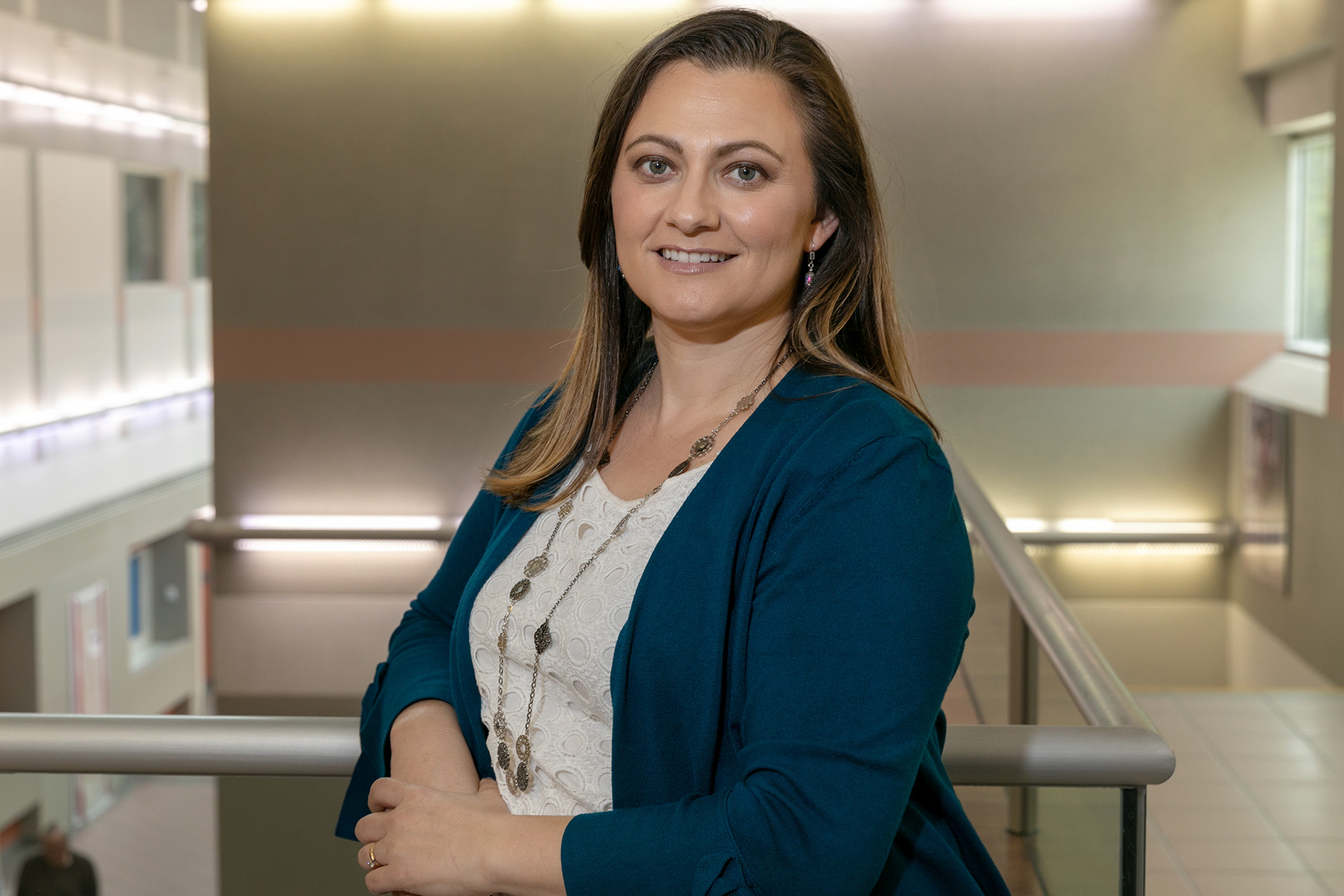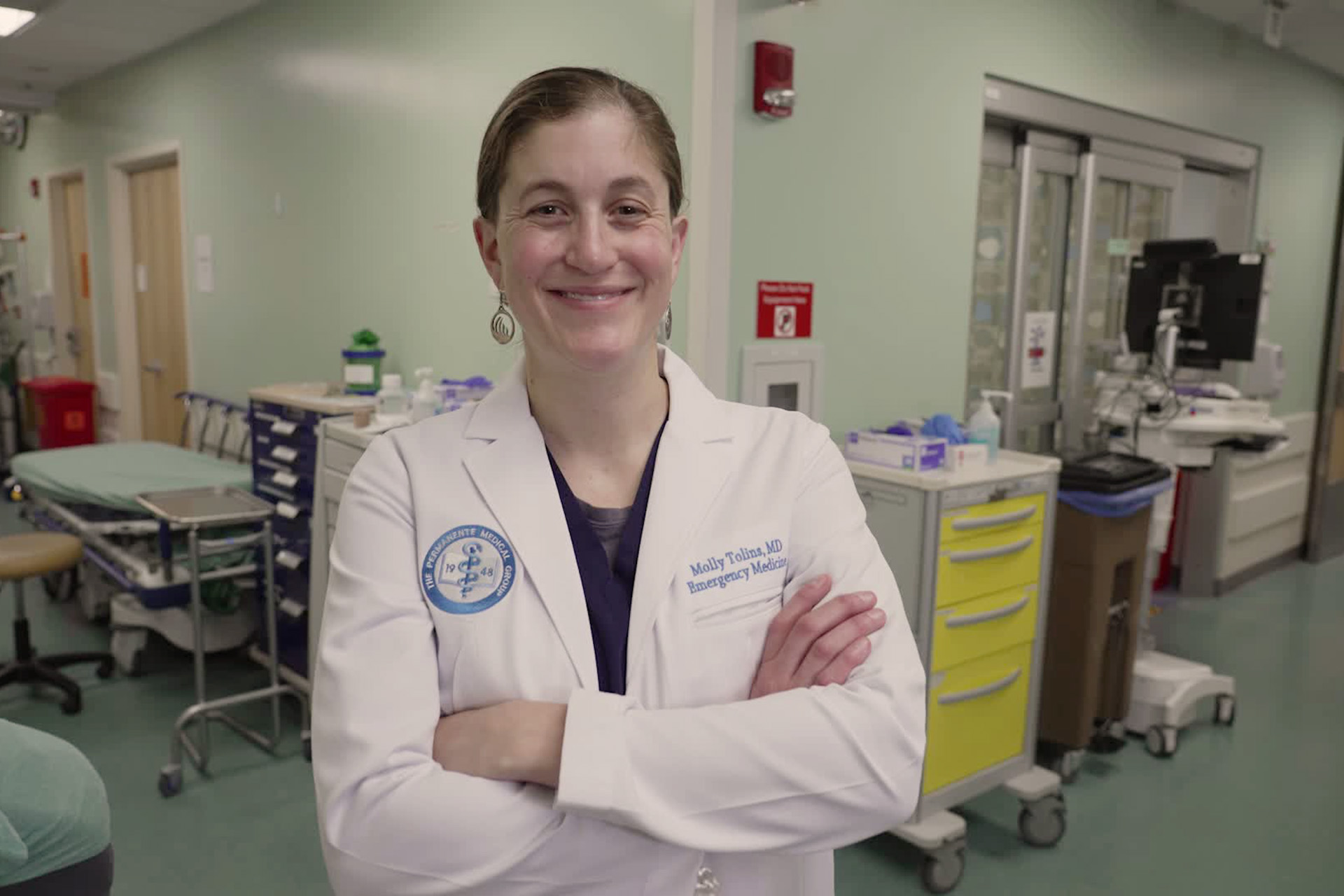Earning a doctorate in nursing practice while working full time and helping raise 2 boys during a pandemic might seem impressive, but Stacy Alves, DNP, RN, is just getting started.
On January 17, the Sacramento-area native began a new chapter in her nursing career as associate chief nursing executive at the Kaiser Permanente Santa Clara Medical Center, where she will be sharing a “huge level of accountability and responsibility” for nursing care and government regulations that cover quality care, safety, and compliance.
“In nursing school they don’t teach us about the business of health care or how to be a manager or how to integrate scientific evidence into nursing practice, but this degree gives us the tools to do that,” said Alves, who received her doctorate from the University of San Francisco, courtesy of the Kaiser Permanente Nurse Scholars Academy.
Alves earned her degree while serving as director of Kaiser Permanente South Sacramento Medical Center’s department of Clinical Education Practice and Informatics, where she started her career as a clinical educator in 2013.
She is among the fourth group of nurse leaders selected to participate in a 12- to 18-month Chief Nurse Executive Fellowship offered by the Kaiser Permanente Nurse Scholars Academy.
The academy, which started in 2015, offers tuition support for qualified nurses to pursue advanced degrees, national certification, and professional development opportunities while they work.
Alves joins 2 other nurse leaders in the 2022 Chief Nurse Executive Fellowship, Pavna Sloan and Gertrude Tiangco.
“Our original goal with the Nurse Scholars Academy was to support our nurses to pursue 500 bachelor’s, 250 master’s, and 100 doctoral degrees by 2020, and we were able to exceed that,” said Jim D’Alfonso, DNP, RN, executive director, Professional Excellence & The Kaiser Permanente Scholars Academy. “Creating innovative opportunities for Kaiser Permanente nurses to return to school and advance their careers is critical in preparing the next generation of nurse leaders, educators, and clinical experts to step into critical roles and balance both current and anticipated global nurse shortages.”
D’Alfonso said when the academy was started 7 years ago, Kaiser Permanente Northern California had no chief nurse executives with doctorates. Today, 15 of the 19 chief nurse executives have earned or are actively pursuing them. And 110 registered nurses in total have earned doctoral degrees through academy programs.
“I know of no other health system in the nation where such a substantial percentage of chief nurse executives and regional leaders are prepared at this level,” D’Alfonso said.
In her new job at the Santa Clara Medical Center, Alves said she is looking forward to mentoring more nurses like herself to pursue advanced degrees and take on new roles and leadership positions.
“When you invite nurses to the decision-making table, it really encourages them, and they have phenomenal ideas, perspectives, and insight that others may not see,” said Alves. “It also helps transform their daily practice because they get a big-picture view they wouldn’t see otherwise.”
D’Alfonso said he is inspired every time a new group of nurses complete their degrees or achieves professional certification.
“To me the Scholars Academy is about hope,” he said. “It’s hope and a vision to help nurses achieve their career aspirations and to ensure Kaiser Permanente nurses continue to lead innovation and transformation in healthcare.”




